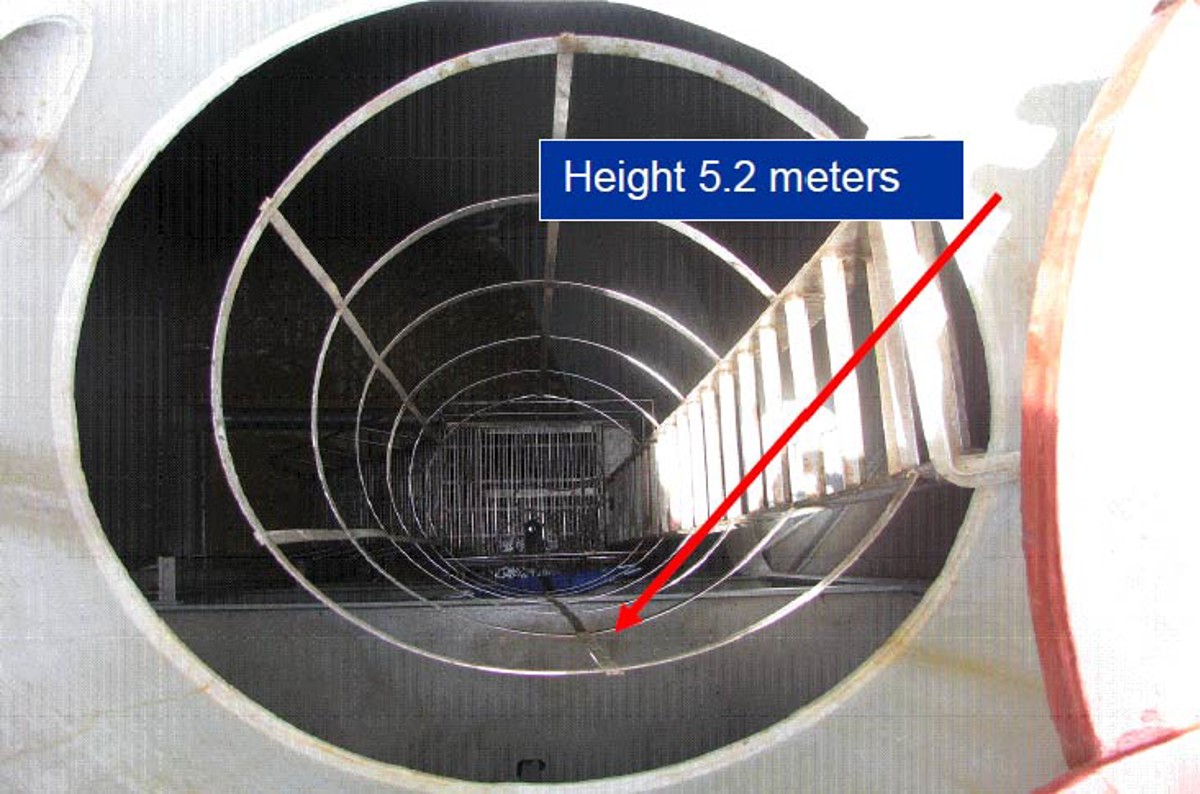Confined space – multiple fatalities
- Safety Flash
- Published on 4 July 2011
- Generated on 15 February 2026
- IMCA SF 06/11
- 3 minute read
Jump to:
An incident has been drawn to IMCA’s attention in which one man died and two men had to be hospitalised following entry into a confined space.
What happened?
The incident occurred when the chief officer had decided to control the valves of the slop tanks on the following day, and required the bosun to open the access hatches in order to start ventilation of the slop tanks to prepare for ‘gas free’.
Shortly afterwards, personnel heard a noise as if an object had fallen into the tank. The chief officer came to the starboard slop tank and saw the bosun lying unconscious on the middle platform, 5.2 metres below the main deck. The chief officer immediately entered the tank with the intention of helping him. Further crew members arrived at the slop tank and saw the chief officer trying to wake the bosun up. Assistance and a stretcher was called for, and one crewman remained and then entered into the tank in order to help the chief officer.
All three persons became unconscious in the tank. Shortly thereafter the second officer started preparations for entering safely into the starboard slop tank. A portable fan was fitted to the slop tank in order to accelerate the ventilation. In the meantime the atmosphere inside the tank was measured by a portable gas analyser. The device went off to indicate the existence of H2S in the tank. The read values were O2: 20, CO: 0, H2S: 60 and LEL: 0.
Then the second officer put on a BA set and entered the slop tank. Afterwards the crewman, the chief officer and the bosun were all lifted out of the tank. The crewman and the chief officer were hospitalised and made a full recovery. Unfortunately the bosun could not be resuscitated and died.

entrance to slop tank in which incident occurred
What were the causes?
Following investigation, the following points were noted:
- The bosun had fallen into the slop tank for unknown reasons.
- The chief officer entered into the tank impulsively ignoring the safety rules completely and acting emotionally to help his colleague.
- The crewman also reacted emotionally rather than logically and entered the tank to assist the chief officer to rescue the bosun.
- The recovery operation, including identified the danger caused by the accumulated gas in the tank, the rescue of the victims from the tank, the application of the first aid treatment and the helicopter medevac was carried out successfully and professionally in accordance with company procedures.
- There was inadequate understanding of how this lethal concentration of H₂S had been produced in the slop tanks.
IMCA Safety Flashes summarise key safety matters and incidents, allowing lessons to be more easily learnt for the benefit of the entire offshore industry.
The effectiveness of the IMCA Safety Flash system depends on the industry sharing information and so avoiding repeat incidents. Incidents are classified according to IOGP's Life Saving Rules.
All information is anonymised or sanitised, as appropriate, and warnings for graphic content included where possible.
IMCA makes every effort to ensure both the accuracy and reliability of the information shared, but is not be liable for any guidance and/or recommendation and/or statement herein contained.
The information contained in this document does not fulfil or replace any individual's or Member's legal, regulatory or other duties or obligations in respect of their operations. Individuals and Members remain solely responsible for the safe, lawful and proper conduct of their operations.
Share your safety incidents with IMCA online. Sign-up to receive Safety Flashes straight to your email.